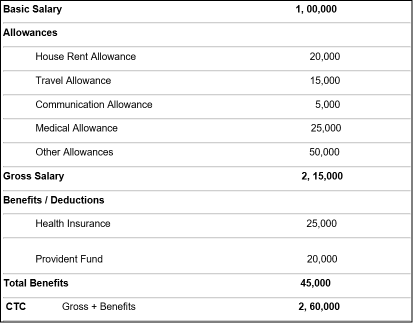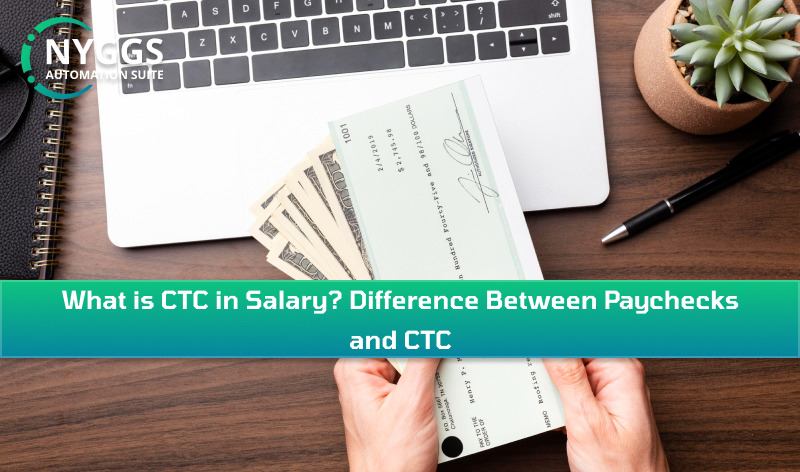In human resource terms, the full form of CTC in salary means the cost-to-company. Basically, it is the total cost spending on an employee in a month by an employer.
The cost-to-company (CTC) includes the employee’s salary, allowances, bonuses, and any other cost of benefits. In some cases, it may also include the cost of training and development programs.
So, let’s dig deep to learn what the CTC in salary means and what components it includes.
What is CTC (Cost-to-Company)?
Defining the employee’s salary structure and the cost-to-company is a critical duty for a human resources professional. This means that, in addition to the salary, the cost-to-company calculation includes additional financial and asset allowances. Basically, a CTC in salary is the total cost a company bears to serve an employee in a particular year.
Components of CTC in Salary
The components include total Monthly wages and other financial perks to calculate a proper Cost-to-Company.
Here is a hypothetical breakdown of the Cost-to-Company,
Finally, CTC = Direct Benefits + Indirect Benefits + Basic Salary
Direct Benefits
- Basic Salary
- Provident Fund
- Dearness Allowance
- House Rent Allowance
- Medical Allowance
- Traveling/Vehicle Allowance
- Incentives or Bonuses
Indirect Benefits
- Interest-Free Loans
- Food or Subsidized Meals
- Leased Accommodation
- Medical/Life Insurance
- Office Space Rent
- Income Tax Savings
Basic Salary
- The basic salary is the sum of payments the employee takes home.
How is Cost-to-Company Calculated?
Some of the methods HR uses to calculate the cost-to-company are derived from tax laws, while company norms and compensation structures determine others. Down below is the basic formula to calculate CTC in salary:
CTC = Take Home Salary + TDS + Taxes + Provident Fund + Other Expenses
The following example will help you understand different salary components and how to calculate basic pay or take-home pay.

Difference between In Hand Salary and CTC
The main difference between CTC and paychecks is:
- CTC – The Total Cost to the company for an employee from hiring to retaining him for a specific period
- In Hand Salary – A paycheck is an amount an employee receives as his net income after taxes and other deductions.
In short, cost-to-company includes all the amount associated with hiring an employee to keep him employed. On the other hand, a paycheck is the amount of money an employee collects. Paychecks wraps all payment information including all deductions.
Nonetheless, the CTC in salary administers comprehensive detailing of the total cost of hiring an employee, and the paycheck provides a close-up of the employee’s earnings in a specific pay time that an employee receives in his bank account.
Conclusion
CTC in Salary is a critical aspect of any organization’s payroll administration. The cost-to-company includes all monetary as well as non-monetary benefits that an employee gains. Generally, HR calculates it by adding all expenses with the in-hand salary of an employee.
Overall, understanding the Cost-to-Company and its components benefits both companies and employees. Also, it facilitates transparency and clarity in the payroll software and ensures that employees are getting fair pay for their work. Lastly, do you have any suggestions about cost-to-company? Comment below!







